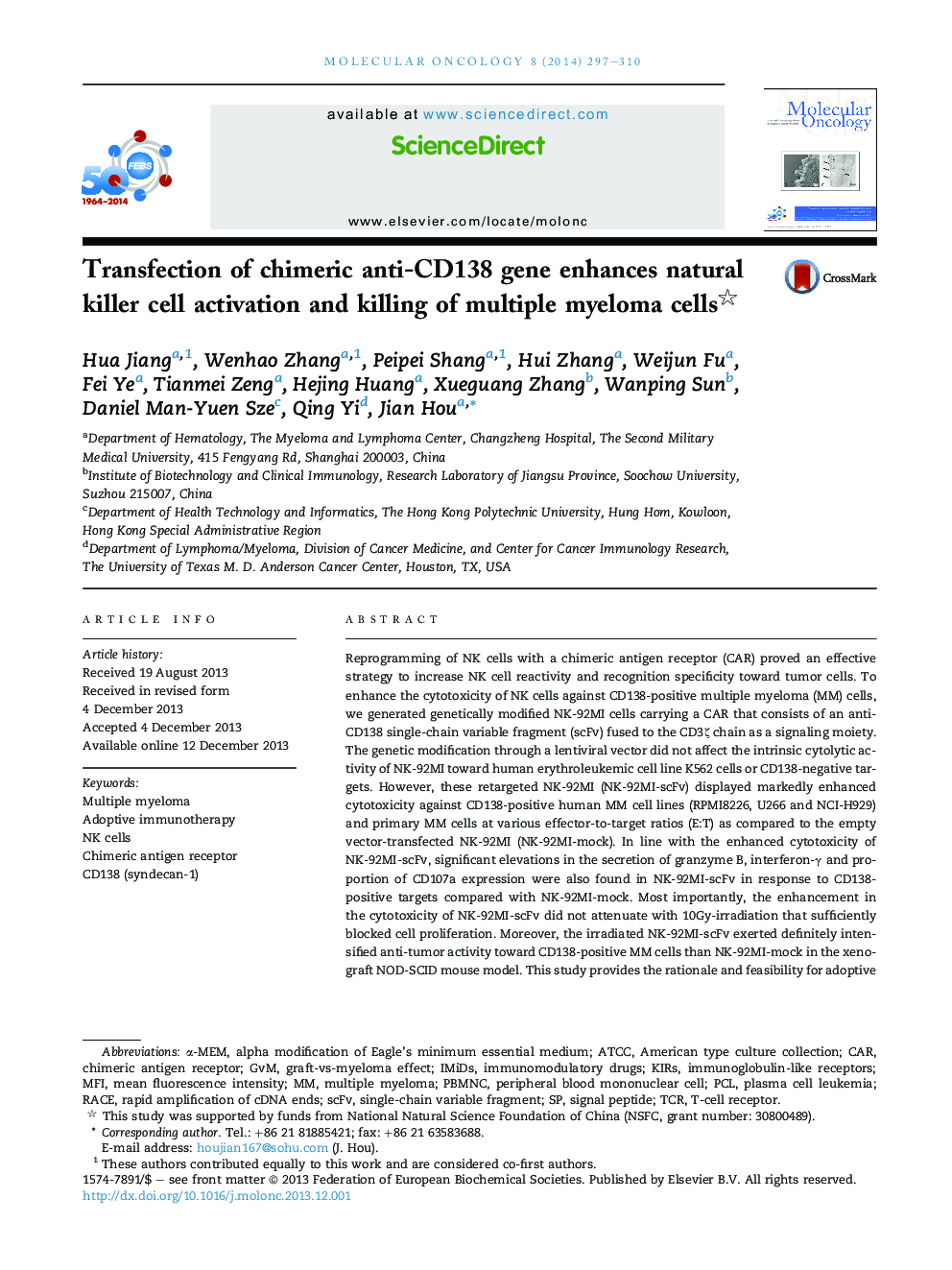| Article ID | Journal | Published Year | Pages | File Type |
|---|---|---|---|---|
| 10914749 | Molecular Oncology | 2014 | 14 Pages |
Abstract
Reprogramming of NK cells with a chimeric antigen receptor (CAR) proved an effective strategy to increase NK cell reactivity and recognition specificity toward tumor cells. To enhance the cytotoxicity of NK cells against CD138-positive multiple myeloma (MM) cells, we generated genetically modified NK-92MI cells carrying a CAR that consists of an anti-CD138 single-chain variable fragment (scFv) fused to the CD3ζ chain as a signaling moiety. The genetic modification through a lentiviral vector did not affect the intrinsic cytolytic activity of NK-92MI toward human erythroleukemic cell line K562 cells or CD138-negative targets. However, these retargeted NK-92MI (NK-92MI-scFv) displayed markedly enhanced cytotoxicity against CD138-positive human MM cell lines (RPMI8226, U266 and NCI-H929) and primary MM cells at various effector-to-target ratios (E:T) as compared to the empty vector-transfected NK-92MI (NK-92MI-mock). In line with the enhanced cytotoxicity of NK-92MI-scFv, significant elevations in the secretion of granzyme B, interferon-γ and proportion of CD107a expression were also found in NK-92MI-scFv in response to CD138-positive targets compared with NK-92MI-mock. Most importantly, the enhancement in the cytotoxicity of NK-92MI-scFv did not attenuate with 10Gy-irradiation that sufficiently blocked cell proliferation. Moreover, the irradiated NK-92MI-scFv exerted definitely intensified anti-tumor activity toward CD138-positive MM cells than NK-92MI-mock in the xenograft NOD-SCID mouse model. This study provides the rationale and feasibility for adoptive immunotherapy with CD138-specific CAR-modified NK cells in CD138-positive plasmacytic malignancies, which potentially further improves remission quality and prolongs the remission duration of patients with MM after upfront chemotherapy.
Keywords
PBMNCIMiDsα-MEMATCCTCrscFvGVMMFIPCLKIRsadoptive immunotherapyrapid amplification of cDNA endsImmunomodulatory drugsPeripheral blood mononuclear cellNK cellssingle-chain variable fragmentPlasma cell leukemiaCARAmerican Type Culture CollectionRaceMultiple myelomamean fluorescence intensitySignal peptidechimeric antigen receptorT-cell receptor
Related Topics
Life Sciences
Biochemistry, Genetics and Molecular Biology
Cancer Research
Authors
Hua Jiang, Wenhao Zhang, Peipei Shang, Hui Zhang, Weijun Fu, Fei Ye, Tianmei Zeng, Hejing Huang, Xueguang Zhang, Wanping Sun, Daniel Man-Yuen Sze, Qing Yi, Jian Hou,
